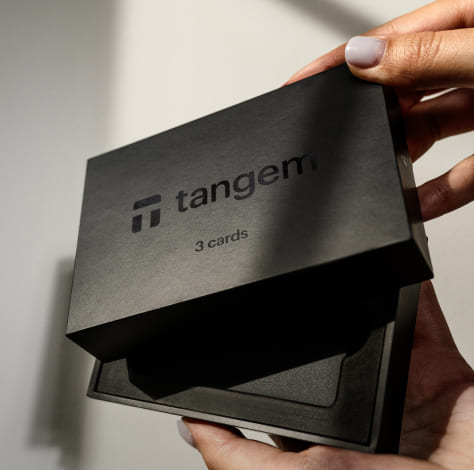
There’s a significant psychological factor influencing how individuals choose cryptocurrency wallets: confirmation bias. This cognitive bias can lead users to favor information that supports their preconceived notions while ignoring vital security features. Understanding this bias is crucial, as it may cause one to overlook potential vulnerabilities in their chosen wallet, putting their investments at risk. By being aware of these biases, investors can make informed decisions based on comprehensive evaluations rather than personal predispositions, ultimately enhancing their crypto security.
Key Takeaways:
- Be aware of confirmation bias when researching wallets; diversify information sources.
- Evaluate wallets based on objective criteria rather than personal preferences or opinions.
- Implement a systematic approach to wallet selection that includes critical analysis of security features.
Understanding Confirmation Bias
To navigate the complexities of crypto wallet selection, understanding confirmation bias is crucial. This cognitive phenomenon occurs when individuals favor information that supports their preexisting beliefs while disregarding contradictory evidence. In the rapidly evolving cryptocurrency landscape, this can lead to suboptimal decision-making and potentially significant financial losses.
Definition and Implications
The implications of confirmation bias in the crypto realm are significant. Investors may become overly attached to specific wallets or assets, ignoring data that highlights their weaknesses. By only seeking out information that aligns with their choices, individuals risk amplifying their exposure to security vulnerabilities or poor investment returns, ultimately jeopardizing their financial well-being.
Examples in Crypto Decision-Making
After selecting a crypto wallet, investors often fall prey to confirmation bias by only consuming content that praises their choice. This can manifest as ignoring warnings about security flaws or dismissing alternative wallets known for superior features. As a result, decisions become less about objective analysis and more about reinforcing prior choices.
With the overwhelming amount of information available, individuals may consult only community forums or social media groups that echo their views, contributing to a cycle of misinformation. This selective exposure can skew perceptions and lead to increased risk if adverse events occur. Engaging with a broader spectrum of information can mitigate this bias, enabling better-informed decisions and fostering a more secure investment strategy.
The Importance of Wallet Security
Even in a decentralized financial world, the importance of wallet security cannot be overstated. With an increasing number of users entering the cryptocurrency space, the potential for compromising sensitive information is higher than ever. Prioritizing strong security measures can protect your investment from theft and unauthorized access, ensuring peace of mind.
Types of Wallets
Above all, understanding the different types of wallets available is crucial for selecting a secure option that suits your needs. Each wallet has its own set of features and levels of security, which can significantly impact your overall safety in cryptocurrency transactions.
| Type | Description |
| Hardware Wallet | Physical devices that securely store your private keys offline. |
| Software Wallet | Applications installed on devices, offering a balance of security and convenience. |
| Web Wallet | Online services for storing cryptocurrencies, but riskier due to internet access. |
| Mobile Wallet | Apps on mobile devices, providing easy access but requiring careful app selection. |
| Paper Wallet | Printed QR codes for storing keys offline, highly secure but prone to loss. |
After understanding the kinds of wallets, it is crucial to evaluate their security features to make informed choices in securing your assets.
Security Features to Consider
Behind every secure wallet, there are specific security features that users should prioritize. For example, features such as two-factor authentication, encryption, and private key control are pivotal in safeguarding against potential threats. The combination of these features creates a formidable barrier against unauthorized access.
For instance, a wallet that offers two-factor authentication substantially reduces the risk of hacking attempts, while encryption ensures that your data remains unreadable even if compromised. Additionally, maintaining control over your private keys minimizes reliance on third parties. Be aware of wallets lacking these crucial features, as they may result in a dangerous compromise of your funds.
Evaluating Wallet Options
Keep an open mind when assessing different wallet options for cryptocurrency. It is vital to explore various types of wallets—software, hardware, and paper wallets—to gain a comprehensive understanding of the features and security measures each type offers. By considering wallets with various reputations and user bases, investors can uncover unique advantages or hidden pitfalls in options they might otherwise overlook.
Collecting Diverse Information
Against common tendency, seeking out diverse sources of information is fundamental to making an informed wallet selection. Engaging with multiple forums, expert reviews, and crypto communities ensures exposure to various perspectives and diminishes the risk of falling into the trap of confirmation bias. This approach helps users recognize significant differences between options and may reveal vital security features or shortcomings that could impact their decision.
Analyzing User Reviews and Feedback
Across the landscape of wallet options, user reviews and feedback play a pivotal role in shaping perceptions. Analyzing these insights can highlight both the strengths and weaknesses of specific wallets while providing a real-world context that official documentation may lack. Such analysis enables users to discern patterns in user experience, potentially exposing vulnerabilities or notable performance aspects.
Indeed, a thorough examination of user reviews can expose important security flaws that many wallet providers may not readily disclose. Positive reviews often point to user-friendly interfaces and reliable customer support, while negative feedback may illuminate issues like poor security practices or inadequate recovery options. By synthesizing this information, prospective users can make more balanced choices based on actual user experiences rather than marketing claims alone.
Strategies to Counteract Confirmation Bias
For individuals navigating the cryptocurrency landscape, actively seeking contradictory evidence can significantly mitigate confirmation bias. By deliberately exploring opinions, reviews, and analyses that challenge one’s preferred wallet choices, users can better assess the potential risks and benefits of different options. This proactive approach encourages critical thinking and aids in the identification of potential flaws or overlooked features in selected wallets.
Seeking Contradictory Evidence
Confirmation bias often leads individuals to favor information that supports their existing beliefs regarding wallet security. Instead of exclusively consuming content that aligns with their views, users should seek out critiques and negative feedback from various sources. This exposure can reveal important aspects that may have gone unnoticed, enhancing overall decision-making and fostering a more balanced understanding of wallet performance.
Engaging with Diverse Communities
On the other hand, engaging with diverse communities allows individuals to access a broader range of perspectives and experiences regarding wallet security. By participating in forums, social media groups, and discussions that include users from different backgrounds, one can gain insights into various wallet functionalities and potential vulnerabilities. This interaction encourages open-mindedness and helps counteract the tendency to gravitate towards familiar viewpoints.
With active participation in these communities, users not only enhance their knowledge but also expose themselves to differing viewpoints, which can lead to more informed and balanced decision-making. Such interactions can unveil both positive and negative experiences, highlighting potential security concerns or innovations that might have been ignored otherwise. A wide range of experiences contributes to a more thorough understanding of wallet functionalities, further reducing the impacts of confirmation bias.
Making an Informed Choice
All decisions in cryptocurrency wallet selection should be grounded in careful analysis and comprehensive research. Individuals often fall prey to confirmation bias, leading them to favor information that aligns with their pre-existing beliefs. To make an informed choice, one must actively seek a variety of perspectives and critically evaluate the security features, user experience, and reputation of different wallets. This will aid in striking a balance between fulfilling personal preferences and ensuring a robust security posture.
Balancing Security and Usability
Security is paramount when selecting a cryptocurrency wallet, but it must not overshadow usability. Users can become overwhelmed by overly complex security measures that detract from the wallet’s functionality. A wallet that offers high-level encryption and advanced security features may not be practical for someone seeking a seamless user experience. Therefore, it is imperative to evaluate how well a wallet integrates ease of use with security safeguards, ensuring that managing cryptocurrencies remains efficient without compromising protective protocols.
Trusting Your Research Process
Against the backdrop of the cryptocurrency landscape’s ever-evolving nature, trusting your research process is vital. Engaging with reputable sources and cross-referencing information can empower users to discern between fact and scare tactics. Prioritizing unbiased resources and expert opinions can uncover valuable insights that may have been overlooked. Critical thinking and a structured approach to research can mitigate the influence of external biases and lead to a more strategic wallet selection.
Considering the overwhelming volume of information available, it is imperative to focus on verified user reviews and professional analyses, aiming to construct a balanced view of different wallets. Assessing the pros and cons through an objective lens not only strengthens confidence in the decision-making process but also enhances awareness of the inherent risks associated with various wallets. This commitment to an informed approach ultimately shields against the pitfalls of uncritical acceptance of information and ensures safer cryptocurrency management.
Continuous Assessment of Wallet Security
After selecting a cryptocurrency wallet, the security journey doesn’t end there. Ongoing vigilance is crucial to ensure that your chosen wallet remains secure against evolving threats. Regular evaluation of wallet performance and featured security measures is vital, as vulnerabilities can emerge that weren’t initially present. Adopting a proactive mindset can significantly mitigate risks that come with the dynamic landscape of cryptocurrency security.
Additionally, conducting periodic assessments allows users to realign their security needs with the features provided by their wallets. Factors such as user interface, support for multiple currencies, and the availability of two-factor authentication should be continuously assessed. Making well-informed adjustments based on these reviews can enhance overall security and user experience.
Regular Updates and Reviews
Any wallet that you choose must receive regular updates from its developers. These updates often patch security vulnerabilities and enhance existing features, making them a necessary part of a wallet’s ongoing security strategy. Ignoring these updates can leave your assets exposed to attacks that have already been mitigated in newer versions.
Moreover, routine reviews of wallet functionalities and user feedback can provide insights into any potential issues before they escalate. Engaging actively in the crypto community and participating in discussions can also yield valuable information that may lead to better wallet decisions down the line.
Staying Informed on Security Trends
One key aspect of maintaining wallet security is staying informed on the latest security trends. The cryptocurrency landscape is constantly evolving, with new threats emerging rapidly. By keeping updated on new attack vectors, regulatory changes, and advancements in wallet security technologies, users can make better-informed decisions about their wallet options.
Hence, following reputable sources such as cybersecurity blogs, podcasts, and industry newsletters is vital for acquiring knowledge about the latest security threats and best practices. Engaging with online forums or attending blockchain conferences can also expose you to cutting-edge developments and strategies that enhance your wallet’s security posture. Staying well-informed helps mitigate the risk of falling victim to an attack and empowers users to choose wallets that adhere to the highest security standards.
Summing up
Summing up, the evaluation of crypto wallets requires an awareness of personal biases, particularly confirmation bias, which can lead users to favor information that supports their pre-existing preferences. A comprehensive approach to wallet selection should involve thorough research and consideration of diverse opinions and reviews. This helps to mitigate the risk of overlooking wallets that may offer better security features or user experiences.
Furthermore, maintaining an objective mindset can enhance decision-making processes, ensuring that choices are based on facts rather than preconceived notions. By actively seeking out varied perspectives and critically analyzing all available options, individuals can make informed selections that align with their security needs and preferences, ultimately fostering a more robust engagement with cryptocurrency.
FAQ
Q: What is confirmation bias in the context of selecting a cryptocurrency wallet?
A: Confirmation bias refers to the tendency to favor information that supports one’s pre-existing beliefs or opinions. In the context of selecting a cryptocurrency wallet, this may lead individuals to ignore wallets that do not align with their preferences, potentially overlooking better options based on features or security.
Q: How can I avoid confirmation bias when choosing a crypto wallet?
A: To avoid confirmation bias, approach wallet selection with an open mind. Gather a variety of opinions and reviews, weigh the pros and cons of different wallet types, and consider features beyond personal preferences. Engage with diverse sources of information to gain a comprehensive view.
Q: What factors should be considered to ensure security in wallet selection?
A: Key factors for security include the wallet’s encryption methods, two-factor authentication availability, user reviews on security incidents, backup options, and the development team’s track record in addressing vulnerabilities. Assessing these elements can help identify secure wallets while minimizing the impact of bias.







